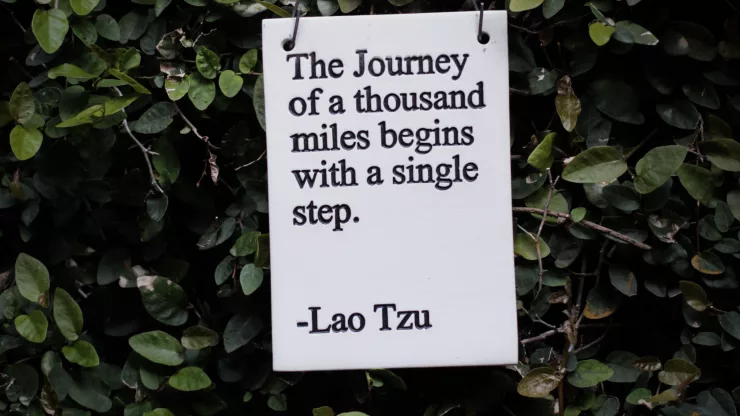Embracing Life Transitions
Life is full of transitions, whether they are planned or unexpected. From graduating from college to starting a new job, getting married, having children, or experiencing a loss, transitions are a natural part of life.
While they can be challenging and overwhelming, they also offer opportunities for growth and new beginnings.
In this article, we will explore strategies for making the most of life transitions, so you can navigate change with confidence and resilience.
Jump to Section
Understanding Life Transitions: Types and Challenges
Life transitions can be classified into three broad categories: developmental, situational, and existential. Developmental transitions are predictable and expected, such as graduating from school, getting a job, or retiring.
Situational transitions are unexpected and often require a significant adjustment, such as losing a job, getting divorced, or experiencing a health crisis.
Existential transitions are related to our sense of identity, purpose, and meaning, such as questioning our beliefs, values, and goals.
Regardless of the type of transition, they all present unique challenges. Some common challenges include:
- Loss of stability and familiarity
- Uncertainty and fear of the unknown
- Feeling overwhelmed and stressed
- Loss of identity and sense of purpose
- Resistance to change and difficulty adapting
Coping with Change: Practical Tips and Techniques
While transitions can be difficult, there are practical tips and techniques that can help you cope with change. Here are some strategies to consider:
- Practice self-care: Take care of your physical, emotional, and mental health by getting enough sleep, eating well, exercising, and seeking support from loved ones or a therapist.
- Stay organized: Create a plan and set goals to help you stay focused and motivated. Use tools like calendars, to-do lists, and reminders to keep you on track.
- Embrace uncertainty: Accept that change is a natural part of life and that you cannot control everything. Focus on what you can control and let go of what you cannot.
- Practice mindfulness: Be present and aware of your thoughts and emotions. Mindfulness can help you manage stress, reduce anxiety, and improve your overall well-being.
- Seek support: Reach out to friends, family, or a support group for help and guidance. You don’t have to go through a transition alone.
Finding Opportunities in Transitions: New Beginnings
While transitions can be challenging, they also present opportunities for growth and new beginnings. Here are some ways to find opportunities in transitions:
- Re-evaluate your goals: Use this time to reflect on your values, aspirations, and priorities. Set new goals that align with your vision for the future.
- Learn new skills: Use this time to learn something new or develop a new skill. This can help you feel more confident and prepared for the future.
- Explore new opportunities: Look for new opportunities that align with your goals and interests. This can be a chance to try something new and exciting.
- Connect with others: Use this time to connect with others who share your interests or goals. This can help you build a support network and find new opportunities.
Building Resilience: Navigating Life’s Curveballs
Resilience is the ability to bounce back from adversity and overcome challenges. Here are some ways to build resilience during times of transition:
- Practice gratitude: Focus on the positive aspects of your life and be grateful for what you have. This can help you stay positive and optimistic.
- Develop a growth mindset: Embrace challenges as opportunities to learn and grow. This can help you develop a more positive and resilient outlook.
- Build a support network: Surround yourself with positive and supportive people who can help you navigate challenges and overcome obstacles.
- Practice self-compassion: Be kind and compassionate to yourself. Treat yourself with the same kindness and understanding you would offer a friend.
- Stay flexible: Be open to change and willing to adapt to new situations. This can help you stay resilient and thrive in times of change.
Thriving in Times of Change
Transitions can be challenging, but they also offer opportunities for growth and new beginnings.
By understanding the types and challenges of life transitions, coping with change, finding opportunities in transitions, and building resilience, you can thrive in times of change.
Remember to take care of yourself, seek support, and stay positive and optimistic. With the right mindset and strategies, you can navigate life’s transitions with confidence and resilience.
FAQ
How can I prepare for a life transition?
Preparing for a life transition involves setting goals, creating a plan, and developing a support network. Identify what you hope to achieve during the transition, and set realistic and specific goals.
Create a plan that outlines the steps you need to take to achieve your goals. Finally, seek support from friends, family, or a professional who can offer guidance and advice.
How can I stay positive during a difficult transition?
Staying positive during a difficult transition involves focusing on the positive aspects of your life, practicing gratitude, and staying optimistic. Surround yourself with positive and supportive people who can help you stay motivated and optimistic.
Focus on what you can control and let go of what you cannot. Practice self-compassion and be kind to yourself.
How can I build resilience during a life transition?
Building resilience during a life transition involves practicing gratitude, developing a growth mindset, building a support network, practicing self-compassion, and staying flexible.
Focus on the positive aspects of your life and be grateful for what you have.
Embrace challenges as opportunities to learn and grow. Surround yourself with positive and supportive people who can help you navigate challenges and overcome obstacles.
Be kind and compassionate to yourself, and be open to change and willing to adapt to new situations.

With a deep passion for personal development, Ben has dedicated his career to inspiring and guiding others on their journey towards self-improvement.
His love for learning and sharing knowledge about personal growth strategies, mindfulness, and goal-setting principles has led him to create My Virtual Life Coach.
Contact Ben at [email protected] for assistance.




